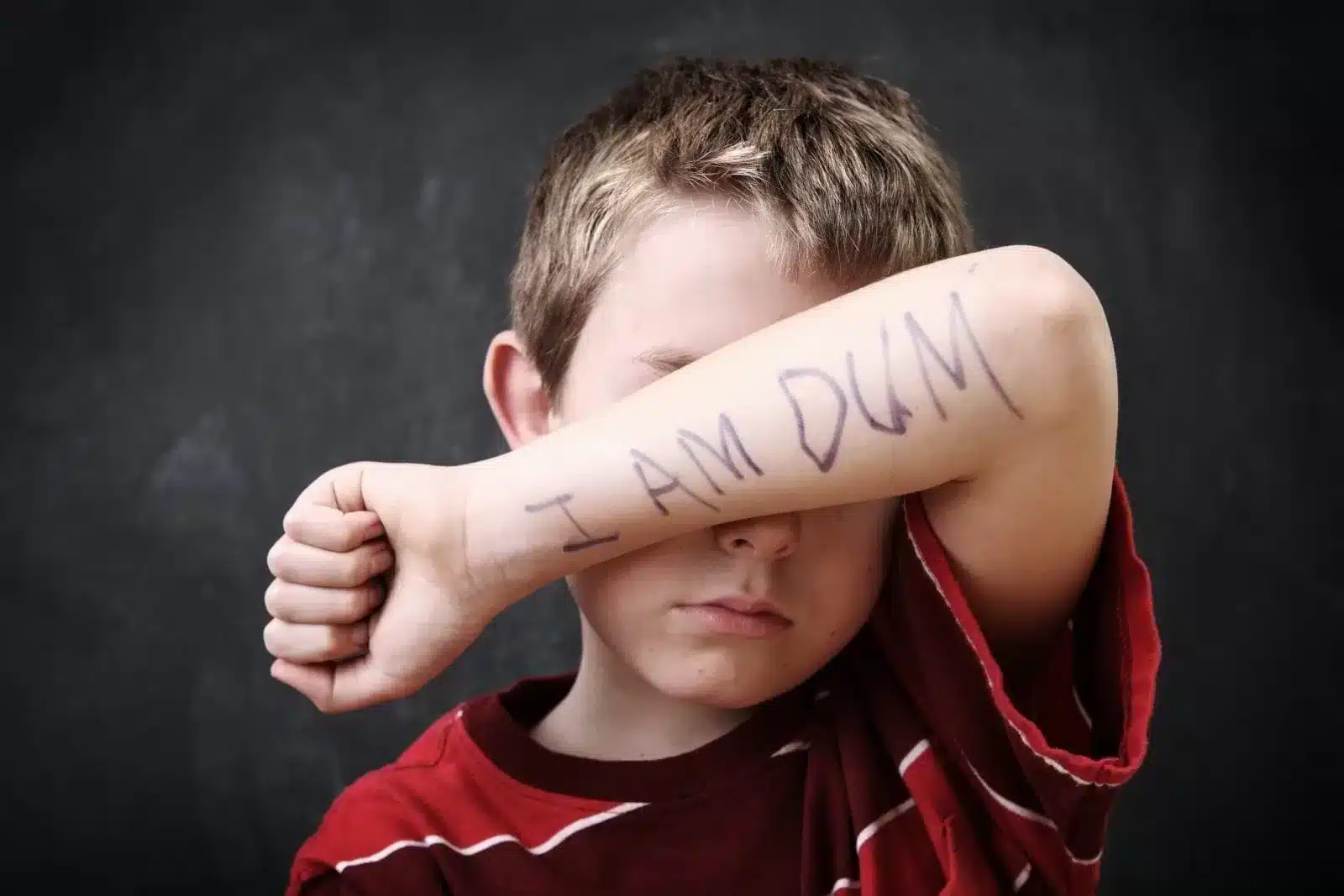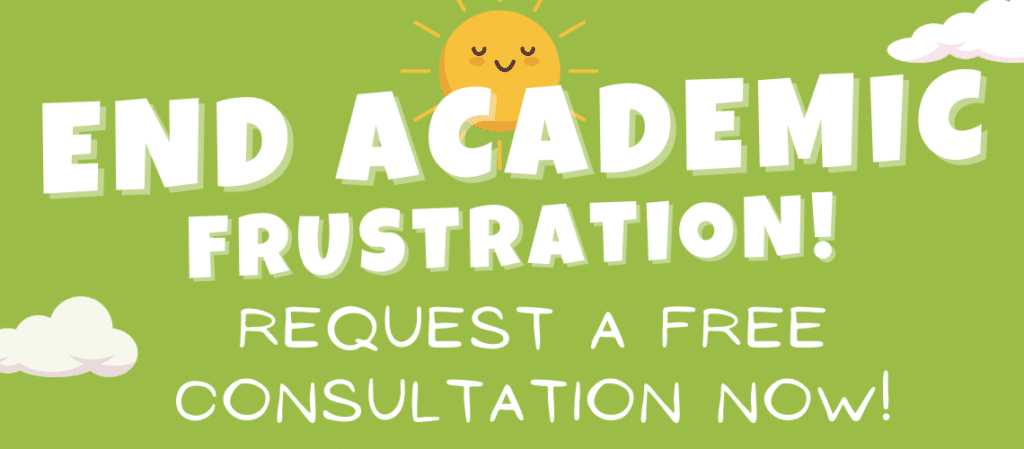For many new and even seasoned teachers, writing an IEP (Individualized Education Plan) can seem like a daunting task. Just the thought of putting together such a crucial document can be extremely overwhelming. This feeling is magnified by the sheer number of students found in a typical classroom and the severe lack of help available to most special education teachers.
Too often, IEP’s aren’t as accurate or as thorough as they should be. This tragedy is due in large part to the incredible work load most special education teachers have. However, as I learned early on in my career and have helped numerous parents and educators realize since, it doesn’t have to be that way.
It didn’t take long during my first year of teaching for an IEP meeting to popup. Talk about being “thrown right in,” I found myself COMPLETELY lost in the process, not because I had forgotten everything that I learned in college, but simply because I’d only known this student for only 3 days!
As I sat down at my desk to write, I thought to myself, “What in the world did I get myself into?” I knew nothing about this student aside from his name, and the icebreaker type of activities we’d done for the first 3 days. I felt like I was about to write a novel based on astrophysics or the anatomy of a T-Rex.
Three days of observation wasn’t enough to gather accurate, useful information, and his current IEP was so poorly written that I couldn’t possibly use it as an example. All it basically said was that this student had ADHD, was working around the third grade level, and that he would become aggressive when frustrated. This information didn’t help me at all, I just had to push through and try to get as much information as possible from this student in a crazy short amount of time.
Using information from his current IEP, I attempted to test him in reading, writing and math all at the third grade level. He was not cooperating and did not want to be tested… AT ALL! He would get so frustrated with me that he would completely shut down for hours. He would put his head down and refuse to do anything. The only word he would say was, “NO!” I would give him choices, positive reinforcements, and everything I could think of to get him to take the tests. He just wouldn’t budge.
On the second day of testing, I was so determined to get something out of him. I started off by telling him that I was done trying to push him to test and that we would just talk. He actually agreed to talk with me; I was in shock. My first question to him was, “Why don’t you want to take the tests? They should be at your level and I even made them easy for you.” He looked up at me and said, “I can’t read any of those words on the paper and I don’t know how to do math. Your tests are too hard for me.”
I was speechless… I totally thought that he was refusing to test because he just didn’t want to, not because the questions where too hard for him.
I decided to give him a kindergarten level reading, writing and math test instead to see how he would do. He ended up doing great and scored between 60-70% on all of them. He never refused or hesitated on the tests. He even said, “I want to get better at reading and would like to be at a higher grade level. I know that I’m low right now, but I’m glad you’re not making me do stuff that’s too hard.”
For 7 long years, this poor child was disciplined because of his behavior and refusal to conduct the work asked of him. He continued getting pushed through the grade levels and the teachers before must have simply copied the previous IEP. NO ONE had stopped to ask him why. NO ONE had put forth enough effort to determine the root cause of his “behavior” and implemented a plan to help. For the remainder of that year, this amazingly gifted student came out of his shell and actually excelled in his work. The baseline was uncovered and a realistic IEP based on facts was written, implemented and achieved. For the first time in his school life, this student felt like he was winning!
What can we all use from this experience?
- Every single child is different and deserve to be treated as individuals.
- Listen, ask questions, don’t just assume and never use the line “that’s just the way he is.“
- Show you care. Most children will come out of their shell if we, as parents and educators, simply SHOW we care.
- Behaviors often have a root cause, find it (see number 2).
- IEP’s are the life blood to special education services, parents need to take charge and advocate for their child.
These simple lessons can significantly impact children and set them on a course toward academic success. As parents and educators, we MUST work together toward a common goal… to positively influence and encourage children toward THEIR excellence.
-Suzie Dalien, M.Ed.













5 Comments
we have to write grade level common core standards as objectives, when we know already they can’t do grade level work. Common Core standards are hard for the general Ed student. We are setting them up to fail.
Same situation happened to my son with this year’s PARCC testing! They pushed him to read and answer questions that had to do with inference and conclusion! He refused and argued and it was a hat ruble time! I later found out, by asking my son, that he didn’t understand how to come up with answer that was not already talked about in what he read.he couldn’t come up with a scenario that didn’t have facts already presented. He also didn’t understand some of the big words in the questions. I told him it was ok and that he just had to write down a few sentences about what he thought it might be because he didn’t write down anything on the first day of testing because he didn’t want to write the wrong answer. The following days he wrote down 5 sentences each day and the stress and arguing and refusal to work was gone! My son thought because he didn’t get it, he was a failure and he didn’t want to fail…again in life! I was then later able to explain to the teachers about his confusion and the fact that he just didn’t get inference and conclusion and that it was not a behavior issue but a self esteem issue and grade level issue. He hasn’t had a bad day of school since!!! That was in Feb if this year!
Rebecca… This is AWESOME!!!!! Thank you so much for sharing!!!!
As a first year special ed teacher I have learned that students you are behind are expected to do they’re great level work students are having severe behavior problems because much of the work is above their understanding and capabilities they are asked to do what they literally cannot do it’s sad and it needs to change it is NOT ok for a first grader kindergartner feel like a failure because they are not able to do what the people in charge they they must be able to do my own teaching philosophy is you start with a child where they are and allow them to experience success before moving them to the next level and again let them explore more success. Failure is not the best motivator for young students. I do not know if I will stay in teaching, very stressed and disappointed with the system.
Krista… Unfortunately, you are FAR from alone with your experience in teaching thus far! With the system being severely underfunded and over populated, many amazing special education teachers face early burnout! Do you have any like-minded teachers at your school? Perhaps someone who feels the same way you do? I know sometimes educators who are fed up with the system and aren’t okay with the norm, can feel like they’re on an island. I have a group of teachers that I hang out with on a regular basis, who want to implement positive change in the school system, just like me. We spend sometime venting our frustrations, however the conversation always turns to how to change the “normal” flow of the school system in order to directly benefit children. It’s partially through these conversations that this website idea was founded. Just an idea, but a peer group can help tremendously! Hang in there!